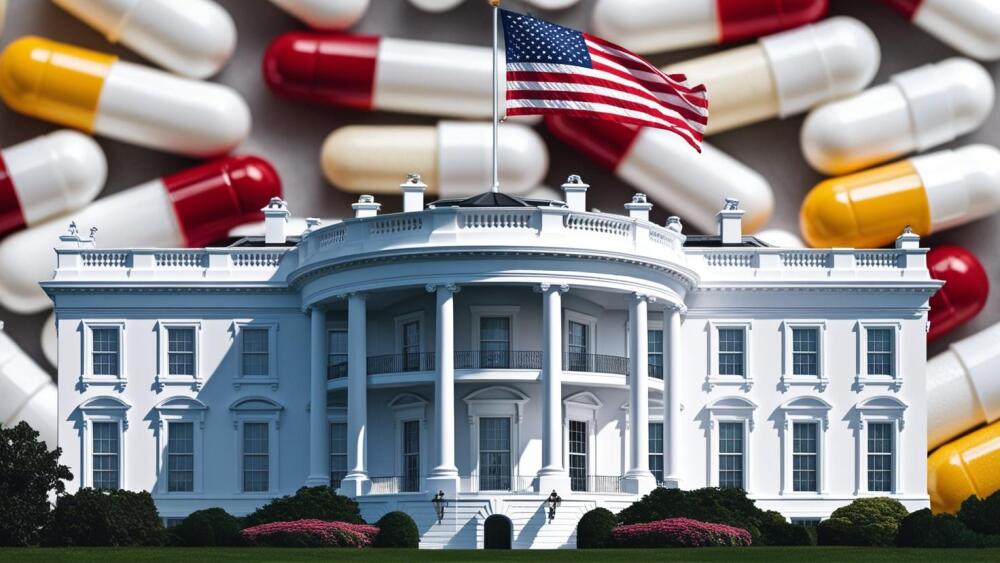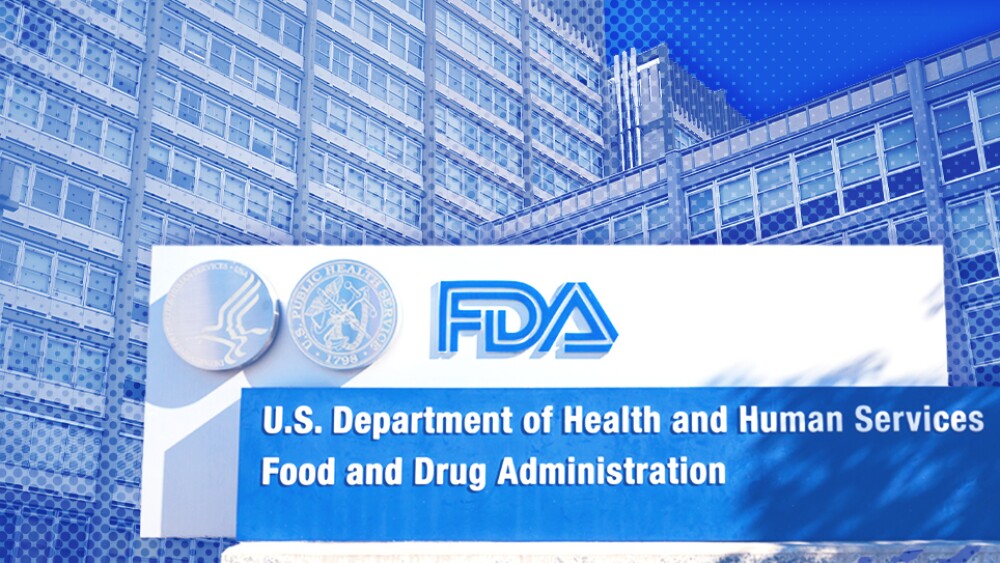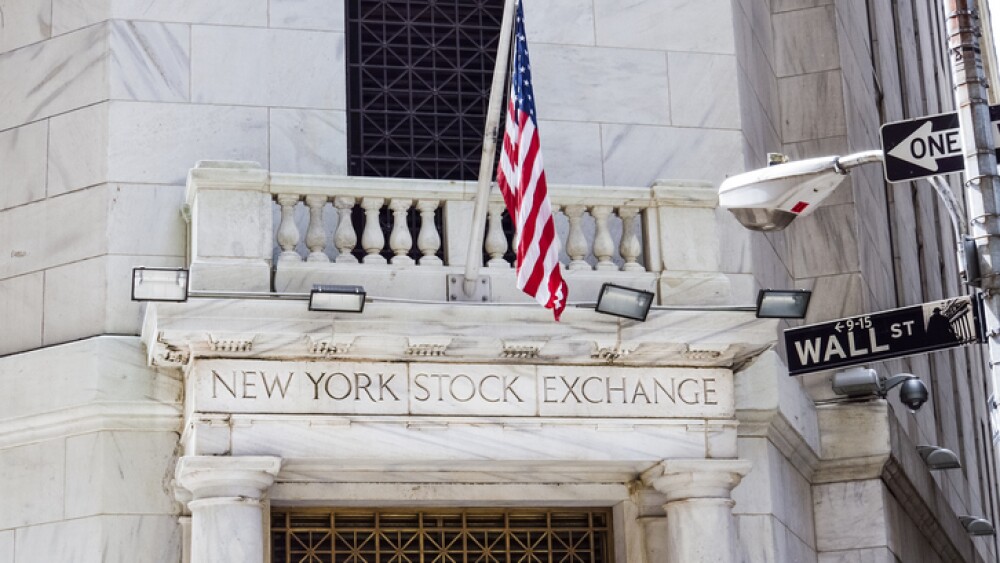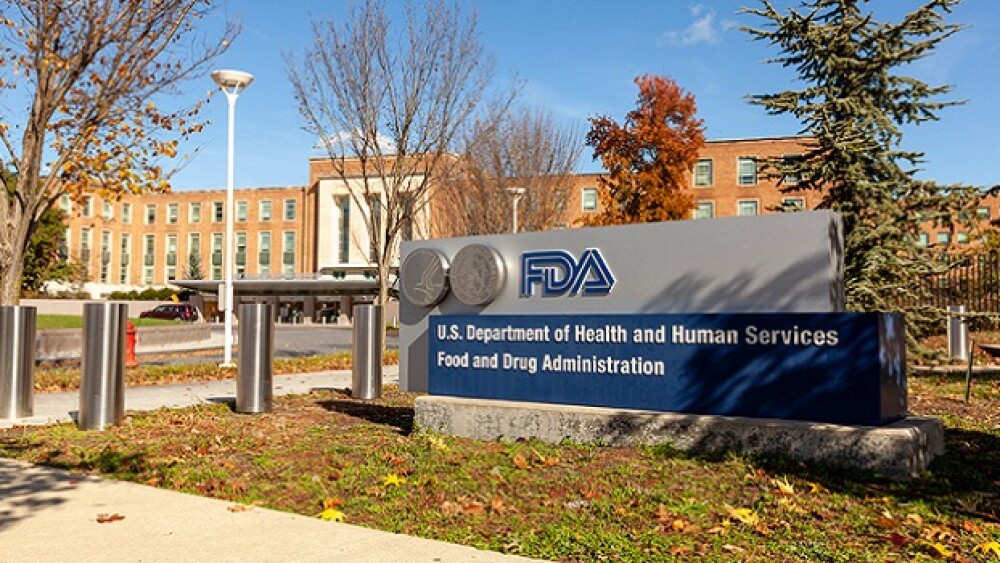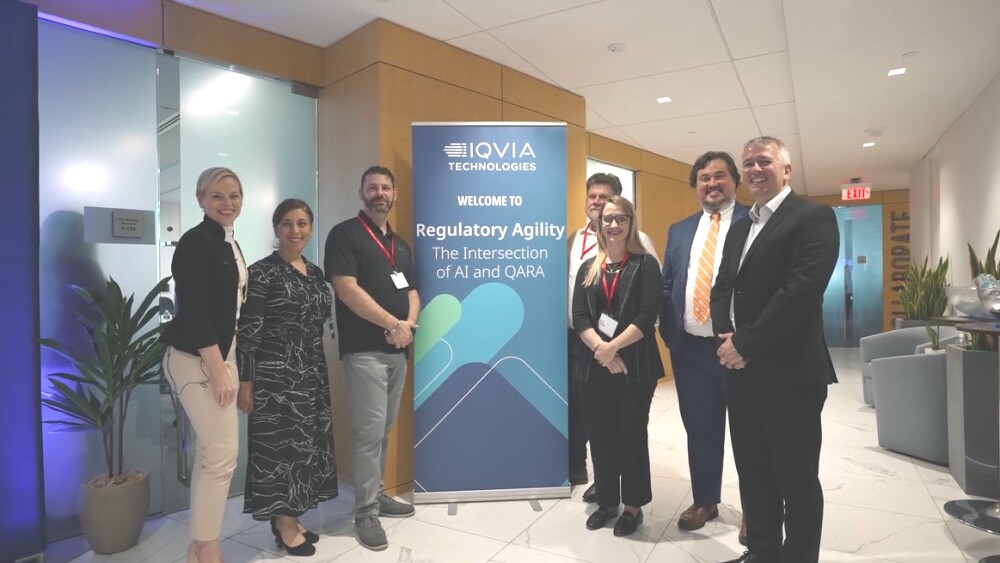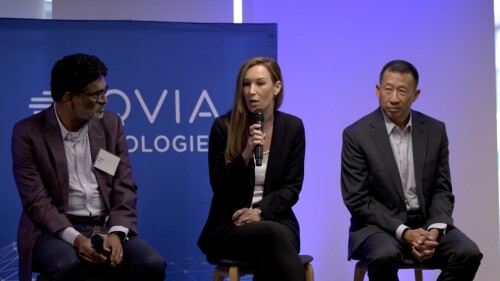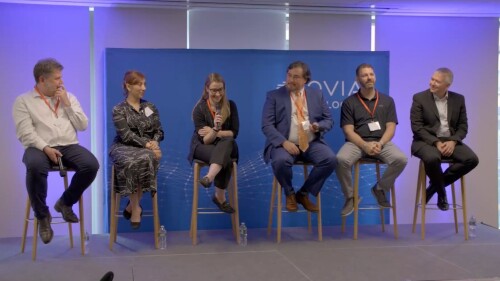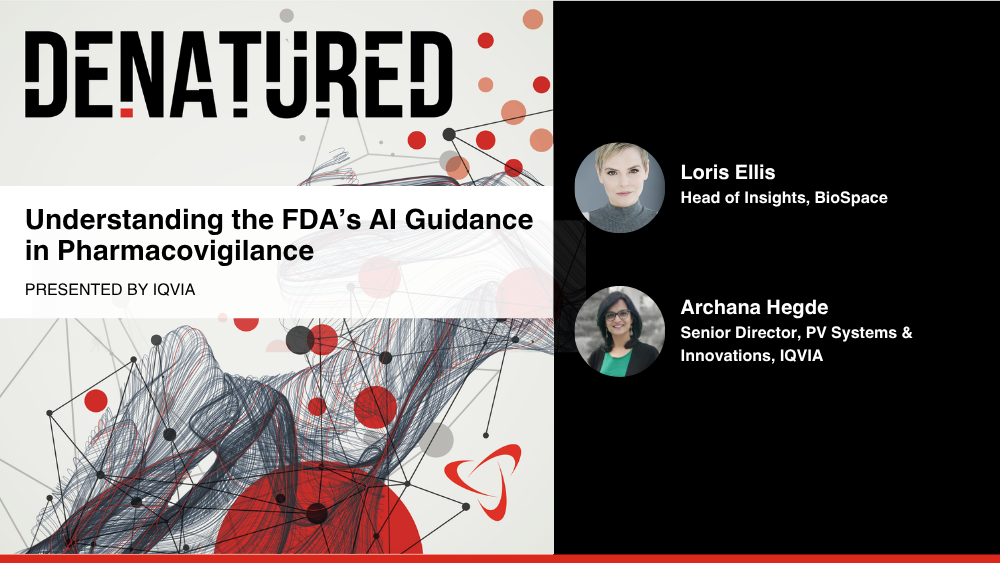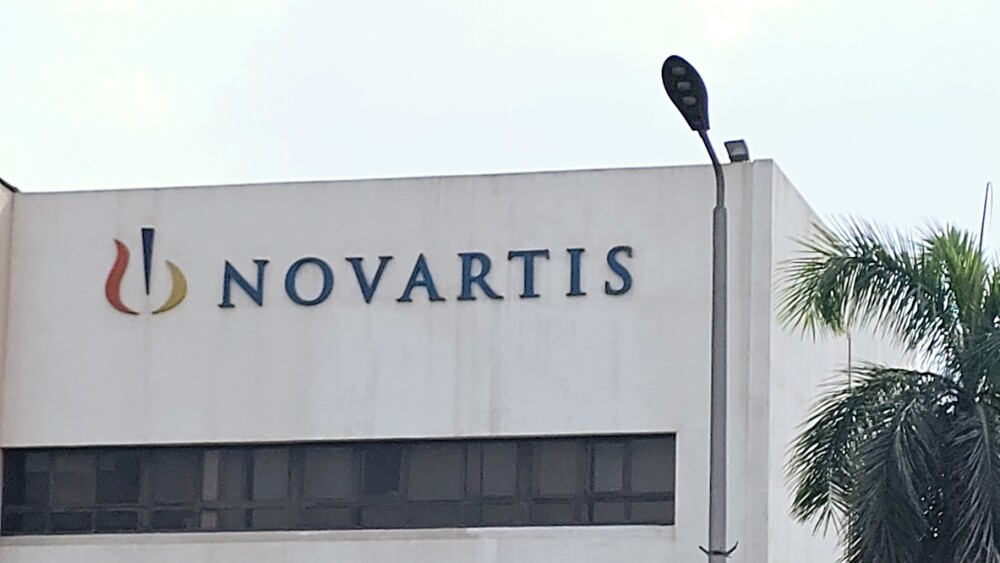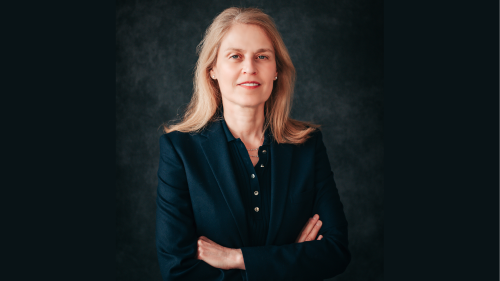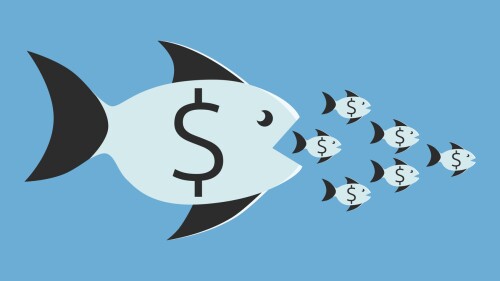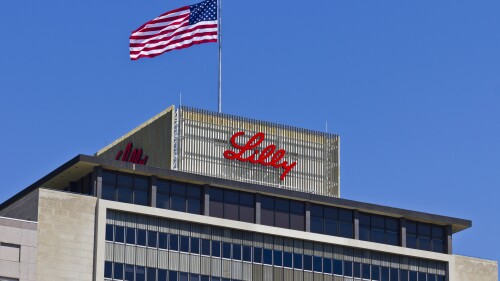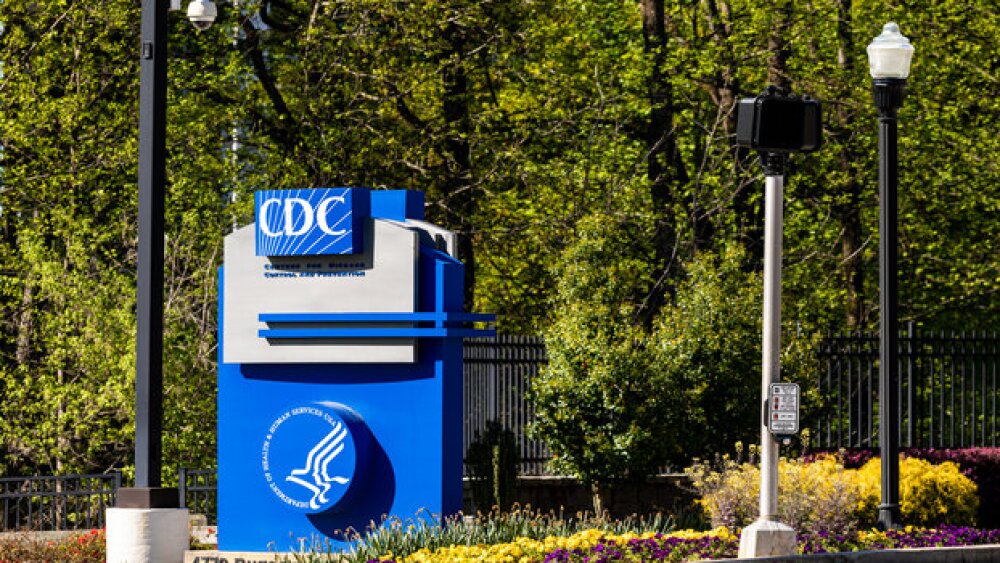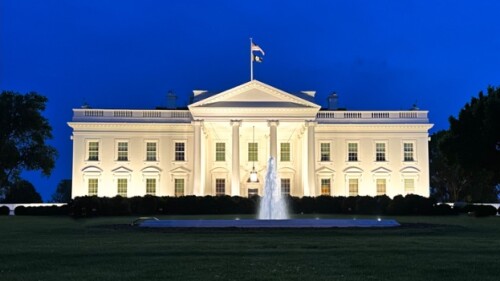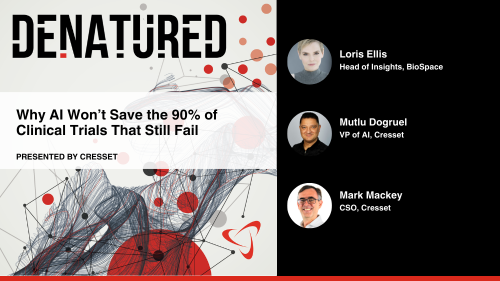The alleged deaths were detected by the FDA’s Vaccine Adverse Event Reporting System, reports from which “generally cannot be used to determine” causation or even contribution, according to the agency.
If approved, Ascendis’ TransCon CNP would become the second therapy for achondroplasia, challenging BioMarin’s Voxzogo.
The FDA’s docket in December includes decisions for two big biologic franchises: BMS’s Breyanzi and Amgen’s Uplizna.
Analysts at Guggenheim Partners expect Voyxact to see “broad commercial uptake” given its relatively broad label compared with previous accelerated approvals for IgA nephropathy.
The discounts should be compared against the drugs’ “ultimate net price” rather than their indicated list price to gauge the true impact of the negotiations, BMO Capital Markets analysts said.
Imfinzi is the first immunotherapy approved for perioperative use to treat gastric and gastroesophageal junction cancers.
FEATURED STORIES
Companies are moving from using AI for distinct operations to applying the technology for control and optimization of the whole production process.
Reshoring generic pharmaceutical production is essential in today’s era of geopolitical instability and heightened awareness surrounding national health security. And it is possible—if done right.
The FDA in September issued two rejections for spinal muscular atrophy therapies—both linked to manufacturing problems—and granted approvals in Barth syndrome and for a subcutaneous version of Merck’s Keytruda that could be key to the blockbuster’s future earnings.
By publishing complete response letters as soon as they are issued to drug sponsors, the FDA is expanding transparency in a way that, while positioned as a public health measure, also grants investors greater visibility into regulatory decisions. Experts question whether this is the agency’s proper remit.
In one of the first demonstrations of the impact of last year’s Loper Supreme Court decision on challenges to agency authority, a judge ruled that the FDA does not have authority to regulate tests developed by clinical laboratories.
From more than 30 target action dates in the last three months of the year, BioSpace has narrowed the list to six regulatory decisions that could have far-reaching implications for biopharma and patients.
LATEST PODCASTS
The high court sides with HHS on HIV PrEP drugs; Health Secretary RFK Jr.’s newly appointed CDC vaccine advisors discuss thimerosal in flu vaccines, skip vote on Moderna’s mRNA-based RSV vaccine; FDA removes CAR T guardrails; AbbVie snaps up Capstan for $1.2B to end first half; and psychedelics take off again with data from Compass and Beckley.
In this episode presented by IQVIA, BioSpace’s head of insights Lori Ellis discusses the FDA’s first draft guidance for AI in drug development, published in January 2025, with Archana Hegde, senior director, pv systems and innovations at IQVIA.
Robert F. Kennedy Jr. testified in front of largely combative congresspeople on vaccine policy, his MAHA report and more; the mass leadership exodus at the FDA continues as CDER and CBER shed key staff; Kennedy’s revamped CDC vaccine advisors convene for their first meeting; Novo and Lilly present new data at the American Diabetes Association’s annual meeting; and BioSpace recaps BIO2025.
Job Trends
About a year after cutting staff by 29%, Sana Biotechnology will trim its workforce as it increases investment in its type 1 diabetes program and looks to extend its cash runway.
Subscribe to GenePool
Subscribe to BioSpace’s flagship publication including top headlines, special editions and life sciences’ most important breaking news
SPECIAL EDITIONS
In this deep dive, BioSpace investigates China’s rise as a biotech powerhouse.
In this deep dive, BioSpace explores the next big thing in obesity.
BioSpace did a deep dive into biopharma female executives who navigated difficult markets to lead their companies to high-value exits.
DEALS
-
The partnership with Matchpoint Therapeutics gets Novartis global rights on all molecules for several unannounced inflammatory diseases identified through the biotech’s discovery platform.
-
What will Boston Pharmaceuticals CEO Sophie Kornowski do now that the company is selling off its pipeline and winding down operations? Whatever it is, data will take her there.
-
The deal, which involves a $700 million upfront payment, gives AbbVie access to ISB 2001, a clinical-stage first-in-class trispecific antibody currently being tested for certain kinds of multiple myeloma as well as autoimmune indications.
-
The deal gives AstraZeneca’s rare disease unit Alexion access to specialized capsids developed by the Japanese biotech JCR Pharmaceuticals for use in up to five of Alexion’s gene therapies.
-
In the second biggest acquisition of the year, Merck gains the commercial COPD drug Ohtuvayre, which could help offset the loss of revenue when Keytruda’s patent expires later this decade.
WEIGHT LOSS
-
Eli Lilly drops a second Phase III readout for orforglipron; AbbVie committed to the psychedelic therapeutics space with the $1.2 billion acquisition of Gilgamesh’s depression asset; the CDC taps vaccine skeptic Retsef Levi to lead its COVID-19 immunization working group; and the FDA prioritizes overall survival in cancer drug development.
-
While Truist Securities analysts said the results from the ATTAIN-2 trial leave “room for competition,” they also pointed to a manufacturing advantage that could unlock a “double-digit billion dollar opportunity” for Eli Lilly.
-
Closely watched data from Eli Lilly and Viking Therapeutics this month have reignited the discussion around oral weight-loss drugs—and their ultimate place within the anti-obesity medication market.
-
The mad rush for safe and effective obesity drugs has winners—including Eli Lilly’s Zepbound and Novo Nordisk’s Wegovy—and losers. Here are five molecules that never made it to the market.
-
While it’s impossible to make apples-to-apples comparisons of the many obesity candidates with so many differences across clinical trials, we at BioSpace are giving it our best shot.
POLICY
-
The MIT professor of management, who already sits on the CDC’s revamped immunization advisory committee, is a known skeptic of vaccines, particularly mRNA technology.
-
The White House has denied reports that the government could soon ban COVID-19 vaccines, noting that in the absence of an official announcement, “any discussion about HHS policy should be dismissed as baseless speculation.”
-
Thousands of employees across the Department of Health and Human Services are set to lose their collective bargaining rights in a move that American Federation of Government Employees national president Everett Kelley called “illegal and immoral.”
-
There’s still much more to come from the White House on tariffs, but the European Union has now reached a trade agreement with the U.S.
-
In this episode presented by Cresset, BioSpace’s head of insights Lori Ellis discusses clinical trial fail rates and AI’s potential to reduce preclinical costs with Mutlu Dogruel, VP of AI and Mark Mackey, CSO of Cresset.
Interviews can be difficult in any field, but especially in a competitive industry like the life sciences. Read on to discover the best way to answer salary interview questions in our guide.
Plus, what to do if your offer is paused and how to manage work anxiety.
If you overidentify with your job, there are ways to find self-worth outside of work, starting with using your transferable skills somewhere else.
While biopharma professionals cited age discrimination as an issue in a new BioSpace report, it’s not the only factor affecting older and younger people’s job searches.
Learn how to discuss career gaps and how to be a great hiring manager and interviewer.
Dry promotions include new titles and responsibilities without higher pay. What should you do if you’re offered this type of promotion?
HOTBEDS
REPORTS
In this Employment Outlook report, BioSpace explores current workforce sentiment, job activity trends and the prospective job and hiring outlook for 2025, particularly as it compares to the previous year.
BioSpace’s third report on diversity, equity, inclusion and belonging in life sciences examines dramatic shifts in attitude around diversity initiatives.
CANCER
-
BioNTech also laid off 63 employees in June in conjunction with the discontinuation of its cell therapy manufacturing operations in Gaithersburg, Maryland.
-
George Tidmarsh takes over temporarily at CBER following Vinay Prasad’s abrupt departure; Replimmune trial leaders protest rejection reportedly driven by FDA’s top cancer regulator Richard Pazdur; Merck’s $3 billion savings push claims 6,000 jobs; and Pfizer CEO Albert Bourla addresses President Donald Trump’s new threats around Most Favored Nation drug pricing.
-
In an open letter, 22 experts who designed and ran Replimune’s Phase III IGNYTE trial answered the FDA’s issues, as outlined in the complete response letter for the melanoma candidate RP1.
-
According to reporting from multiple outlets, Richard Pazdur, head of the Oncology Center of Excellence at CDER, opposed the consensus opinion of CBER staff to approve the drug. Replimune’s stock has dropped precipitously since the rejection.
-
The company expects that the U.S. COVID-19 vaccination rate will be “maybe a couple of points lower” than the prior level of around 20% but that pricing and Comirnaty’s market share will hold steady.
NEUROSCIENCE
-
The deal extends AbbVie’s commitment to the psychedelics space and depression, after emraclidine’s high-profile flop in schizophrenia last November.
-
The platform strategy of using one molecule to target an underlying biological pathway to address many different diseases can be a goldmine for smaller companies. But it also has a unique set of challenges.
-
The small molecule, vatiquinone, had already flunked a Phase III trial, but the company pushed ahead with an approval bid anyway.
-
Waltham, Massachusetts–based Skyhawk Therapeutics has been collecting collaborations with larger companies in spades since launching in 2018.
-
Arguably the FDA’s most anticipated decision this month is for a subcutaneous induction formulation of Biogen and Eisai’s Alzheimer’s drug Leqembi, which, according to Eisai, could “help reduce the burden on healthcare professionals and patients.”
CELL AND GENE THERAPY
-
The European Union’s health regulatory agency did not endorse approving Elevidys for ambulatory patients with Duchenne muscular dystrophy.
-
The strategic reprioritization comes after the company hit two major hurdles in the past year, including a clinical hold for an investigational gene therapy and an FDA rejection for its lead asset.
-
CBER is unanimously against Elevdiys’ return to the market without additional evidence, according to media reports citing an anonymous senior FDA official. Given Elevidys’ full approval, however, experts told BioSpace this path would set up a length legal battle between the regulator and Sarepta Therapeutics.
-
Second-quarter earnings come amid many high-level challenges for the biopharma industry. How will these five closely watched biotechs fare?
-
Dispatch seeks to address two main challenges of immunotherapies in solid tumors: the lack of a target and the immunosuppressive tumor environment.











